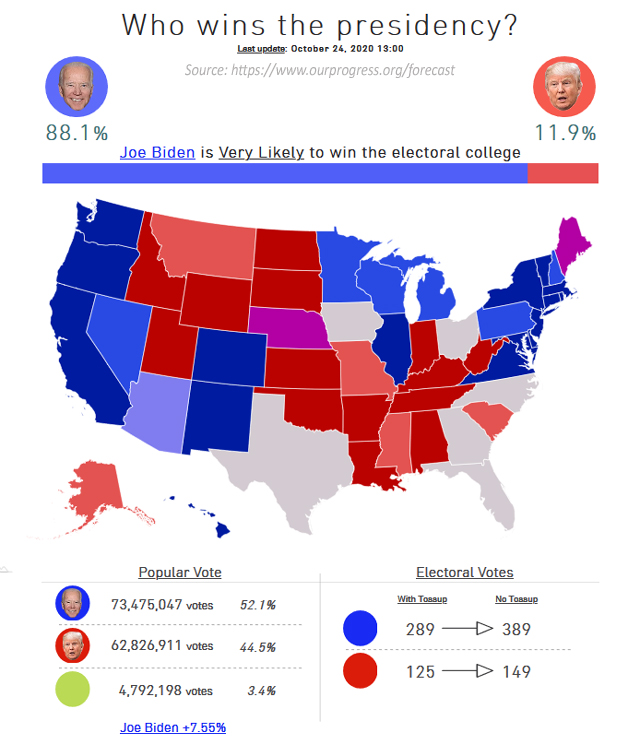US presidential contest increases influence of Pakistani, Muslim voters; immigrant voters, including Muslims, have a deciding role in the 2020 election
ANWAR IQBAL, WASHINGTON: Five journalists of an American broadcasting service recently lost their jobs for publishing Democratic presidential candidate Joe Biden’s election message in Urdu.
Normally, such deviations would have been ignored but the 2020 elections are different. A close contest between President Donald Trump and Mr Biden means that all votes count, even that of Pakistanis, the single largest country group within America’s 3.45 million Muslims. The Pakistani community includes thousands of professionals — particularly physicians – and this gives them an influence much larger than their size. This also explains why the Trump administration reacted so strongly to Voice Of America’s Urdu message.
Pakistani and other Muslim voters are concentrated in key swing and battleground states, such as Michigan, Florida, Wisconsin and Pennsylvania. Two of these states — Michigan and Wisconsin — changed from blue (Democrat) to red (Republican) in 2016.
In 2016, Democrats lost Michigan by less than 20,000 votes. The state has more than 100,000 Muslim voters who can help the Democrats take it back, as those in other key states can too. This will ensure that Mr Biden gets 270 of the 435 electoral votes he needs for the White House.
So, they have a clear message for Muslims. If elected, Mr Biden will “prioritize issues affecting American Muslims, protect their constitutional and civil rights and will honor the diversity of Muslim-American communities”, says a group that identifies itself as “Muslims for Biden”.
But a recent survey by the Institute for Social Policy and Understanding says that Muslim support for President Trump nearly doubled in 2020 compared with a year ago, with 30 per cent of Muslims willing to vote for him.
Another survey by the Council on American-Islamic Relations reports that American Muslims’ support for the Democratic Party fell by 12pc since 2018, while the Republican Party gained 2pc.
Yet, both surveyors acknowledge that Muslims appear to be the religious group least likely to support Mr Trump in 2020. Jewish Americans came in as the second least likely, with only 34pc favoring the president. The only group that showed less support for the president than Muslims was Americans who are unaffiliated with any faith, 23pc.
Mr Biden re-emphasized his message for Muslims in the final US presidential debate on Thursday night, saying that President Trump has “banned Muslims” from coming to the United States because “they are Muslims”.
In July, Mr Biden told Million Muslim Votes Summit that if elected, “I will end the Muslim ban on day one. Day one. And I will work with Congress to pass hate crimes legislation” to prevent future actions.
One of Mr Trump’s first actions as president in 2017 was to suspend entry to the United States of travelers from seven majority Muslim nations.
There are about 23m immigrant voters this year against a total of nearly 240m eligible voters. Of these, only 1m are Muslims — not a large number but when compared with voting patterns, this becomes a significant bloc.
In 2016, only 55.5pc voters used their right to elect. Even if the expected 60pc cast their votes this year, the total would still be 144m. This gives 23m immigrant voters, including Muslims, a deciding role in the 2020 election.
Originally published in Dawn, October 25th, 2020;








